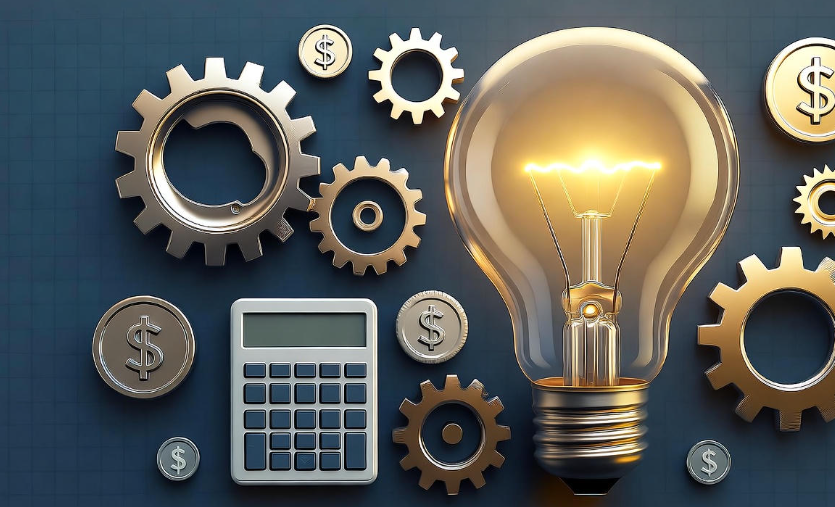Managing taxes smartly is one of the biggest keys to keeping a small business financially strong. Many small business owners work day and night to grow their company but often miss the chance to save money through smart tax planning. The truth is — tax planning isn’t just for big corporations. Small businesses can also use smart strategies to legally reduce taxes, improve cash flow, and invest more in their growth.
Let’s dive into simple, real-world ways you can plan your taxes smartly — without needing to be a finance expert.
Understand What Tax Planning Really Means
Tax planning doesn’t mean avoiding taxes — it means managing your business expenses, income, and investments in a way that legally minimizes what you owe. It’s about timing things smartly. For example, knowing when to buy equipment, when to record expenses, or how to use deductions to your advantage.
Think of tax planning as “financial housekeeping.” You’re keeping your books clean, knowing where every rupee or dollar goes, and using that information to make your business stronger for the next tax season.
Keep Accurate and Organized Records
This is the simplest yet most powerful strategy.
Many small business owners lose potential tax deductions simply because they don’t keep receipts or track small expenses. Every tiny business cost — travel, meals, fuel, office supplies — can count if properly recorded.
You can use accounting software like QuickBooks, FreshBooks, or even Excel sheets to keep records. The goal is to know exactly what was spent, when, and why. When tax time comes, everything is already sorted.
| Expense Type | Example | Deductible? |
|---|---|---|
| Office Supplies | Printer ink, pens, paper | ✅ Yes |
| Travel | Airfare, hotel for business trip | ✅ Yes |
| Meals | Client lunch (50% deductible in many countries) | ✅ Partial |
| Personal items | Groceries, personal car expenses | ❌ No |
Keeping these records not only saves time but can also protect you in case of an audit.
Choose the Right Business Structure
The type of structure your business operates under can make a big difference in how much tax you pay. For example:
-
Sole Proprietorship – Simple to start but you pay personal income tax on all profits.
-
Partnership – Profits are shared and taxed through partners’ income.
-
Limited Liability Company (LLC) – Offers flexibility and tax benefits depending on your country’s laws.
-
Corporation – Often better for larger profits, but it involves more paperwork and different tax rates.
If your business is growing, it may be time to review your structure with a tax advisor. Changing it can sometimes save you thousands yearly.
Take Advantage of All Possible Deductions
Deductions are your best friend when it comes to tax savings. These are expenses that the government allows you to subtract from your income before calculating tax. The more you deduct (legally), the less taxable income you have.
Common deductions include:
-
Office rent and utilities
-
Equipment and tools
-
Marketing and advertising costs
-
Employee salaries
-
Business insurance
-
Travel expenses
-
Professional fees (like accountants or consultants)
Tip: Even a small deduction repeated every month adds up. A $50 recurring monthly expense equals $600 a year — which is worth recording!
Plan Major Purchases Wisely
Let’s say you plan to buy new machinery, laptops, or office furniture — timing can make a difference. If you make the purchase before the tax year ends, you might qualify for deductions immediately. But if your income is higher next year, it might make sense to delay the expense so it offsets future taxes instead.
In other words, don’t just buy — buy smart.
Use Depreciation to Your Advantage
Depreciation is a clever way to save taxes on assets like machinery, vehicles, or computers. Instead of deducting the full cost in one year, you spread it out over several years.
This helps keep your profits (and therefore your taxes) balanced. Some tax laws even allow accelerated depreciation, which means you can claim bigger deductions in the first year to reduce immediate tax pressure.
| Asset Type | Example | Depreciation Period |
|---|---|---|
| Computers | Laptop, desktop | 3 years |
| Vehicles | Delivery van | 5 years |
| Office Furniture | Desks, chairs | 7 years |
Separate Personal and Business Finances
Never mix personal and business money — not even small expenses. Open a dedicated business bank account and credit card. It’s cleaner, more professional, and makes tax reporting much simpler.
When your accountant or tax preparer sees mixed accounts, it becomes confusing — and you might lose some valid deductions. Keeping them separate makes your financial story crystal clear.
Consider Retirement Plans and Insurance
Retirement plans aren’t just for employees — as a business owner, you can create one for yourself. Contributions to retirement accounts are often tax-deductible, meaning they reduce your taxable income now while securing your future.
Similarly, business insurance premiums — like health insurance, liability, or property insurance — are usually deductible too. These protect your business and lower taxes at the same time.
Hire Family Members (Legally!)
This is a strategy many small businesses don’t think about. If you hire your spouse or children (in legitimate roles), you can pay them salaries, which are deductible business expenses. Of course, their work should be real — bookkeeping, social media management, delivery, etc.
The benefit? Your family earns income, your business saves taxes, and the money stays within your household. Win-win!
Use Tax Credits Where Available
Tax credits are even more powerful than deductions because they reduce the tax you owe directly — not just your taxable income.
Examples include:
-
Research & Development (R&D) credits
-
Energy-efficient equipment credits
-
Hiring or training employee credits
-
Technology and innovation credits
Always check which ones your country offers for small businesses. Sometimes, local or regional tax authorities also offer incentives.
Keep an Eye on Changing Tax Laws
Tax rules can change every year. New deductions might appear, while others disappear. That’s why it’s smart to stay updated or have a tax consultant guide you.
Even a small change — like a new deduction limit — can affect how you plan your spending. Regularly reviewing your tax plan ensures you never miss out on new opportunities.
Use Accounting Software and Automation
Technology can be your best partner in tax planning. Tools like QuickBooks, Wave, or Xero automatically categorize expenses, generate reports, and remind you of deadlines.
Automation helps prevent missed filings or underreported expenses. It also gives you real-time visibility of your financial health — something that helps in making smarter tax decisions.

Don’t Forget About Estimated Taxes
If your small business earns income throughout the year, you may need to pay estimated taxes quarterly instead of waiting till year-end. Doing this prevents penalties and keeps your cash flow balanced.
Mark your calendar with due dates to avoid surprises later!
Work with a Professional Tax Advisor
Even though you can do a lot on your own, having a professional accountant or tax consultant is a great investment. They can find deductions or credits you might not know about and help you plan better for the next year.
A good advisor isn’t an expense — they’re an asset.
Common Tax Mistakes Small Businesses Make (And How to Avoid Them)
| Mistake | Why It’s a Problem | How to Avoid |
|---|---|---|
| Mixing business and personal expenses | Creates confusion and audit risk | Use separate accounts |
| Ignoring small deductions | Missed savings | Track all receipts |
| Missing deadlines | Leads to penalties | Use reminders |
| Not reviewing annually | Misses new tax benefits | Schedule yearly review |
Quick Recap — Smart Tax Planning Checklist ✅
| Step | Action | Done? |
|---|---|---|
| 1 | Keep all receipts and invoices organized | ☐ |
| 2 | Choose the best business structure | ☐ |
| 3 | Track deductions and depreciation | ☐ |
| 4 | Use tax credits and benefits | ☐ |
| 5 | File taxes on time | ☐ |
| 6 | Consult a tax advisor yearly | ☐ |
Final Thoughts
Smart tax planning is not just about saving money — it’s about creating a stronger, more sustainable business. When you understand your numbers and make informed financial choices, you give your business the stability it deserves.
Start small, stay organized, and plan ahead. Every smart tax move you make today helps you reinvest in your tomorrow.
-
Secure your future now — Also read: How to Build an Emergency Fund the Right Way
FAQs About Smart Tax Planning for Small Businesses
Q1: Is hiring an accountant necessary for a small business?
Not always, but it’s highly recommended. An accountant can identify deductions and keep you compliant with tax laws you might not understand fully.
Q2: Can I deduct my home office expenses?
Yes, if you work from home and use a dedicated space for business, you can claim a portion of your rent, electricity, and internet bills.
Q3: What happens if I don’t keep receipts?
Without receipts, the tax authorities might deny your deductions. Always keep digital or paper copies of receipts for at least 3–5 years.
Q4: How often should I review my tax plan?
At least once a year — ideally before your fiscal year ends. This gives time to make adjustments and optimize deductions.
Q5: Can startup costs be deducted?
Yes, most countries allow you to deduct certain startup expenses like registration fees, licenses, and initial marketing costs over a few years.




